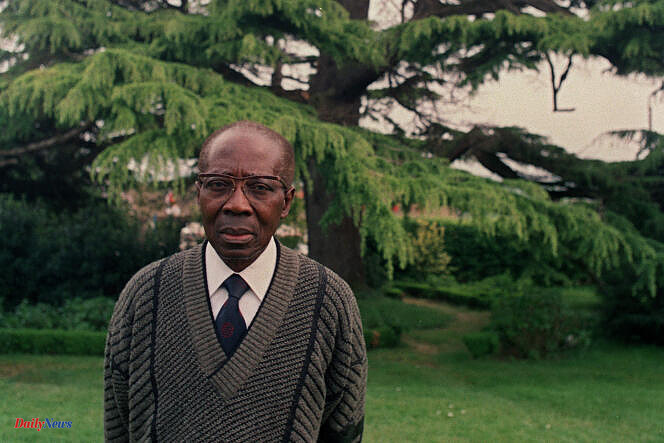An auction of books that belonged to former Senegalese President Léopold Sédar Senghor, scheduled for Tuesday April 16 in Caen, has been “suspended” due to negotiations with Senegal, which plans to acquire “the entire library,” Agence France-Presse (AFP) learned from the organizers.
“The sale has been suspended because the Senegalese state wishes to initiate negotiations with our auction house and with the heir to buy the entire library,” Jean Rivola, auctioneer at the Caen auction house. The director of Senegalese cultural heritage, Oumar Badiane, confirmed to AFP that the new Senegalese authorities “had taken up the matter”.
Senegal's ambassador to France, El Hadji Magatte Seye, told AFP that he had “initiated, on the instructions of the new President of the Republic of Senegal [Bassirou Diomaye Faye], discussions with the auctioneer to result in the suspension of the sale and find an agreement for a private sale”.
“We very much hope that we will reach an agreement very quickly to repatriate the works to Senegal,” he added. In addition, "the State of Senegal has decided to create a Senghor museum for everything that the president represented: first president of Senegal, founding father of the nation, man of culture and man of global dimension, who is in itself a symbol of a universal link between peoples”.
Authors “fallen into oblivion”
Several academics from the country had urged their government in a press release to acquire the works in order to “preserve” and “valorize” this heritage.
The library up for auction is made up of three hundred and forty-three volumes autographed by their authors, most of which have “fallen into oblivion”, specifies Mr. Rivola, a specialist in old books, manuscripts and goldsmithing. “The interest of this library is that it allows us to see the intellectual affinities of Léopold Senghor, the writers with whom he exchanged between the 1940s and 1970s,” he believes, judging that this gives “a photograph of the personalities who gravitated around Mr. Senghor and his work in the immediate post-war period.”
According to the sale catalog, the books are mostly bound and offered at prices ranging from 10 to 40 euros. Few are priced above 60 euros. The books are offered at “affordable” prices because “they are only of interest because of the dedication inside”, or “giving value to a dedication remains very subjective”, judges Mr. Rivola. “Within a fortnight, if there is no outcome in the discussions with the State of Senegal, the collection will be put back up for auction,” he says.
Poet and writer, Léopold Sédar Senghor was a champion of negritude, a movement for the defense of the cultural values of the black world that he founded in the 1930s with the Martinican Aimé Césaire and the Guyanese Léon Gontran Damas. He died in 2001 in Verson, Normandy, at the age of 95.












